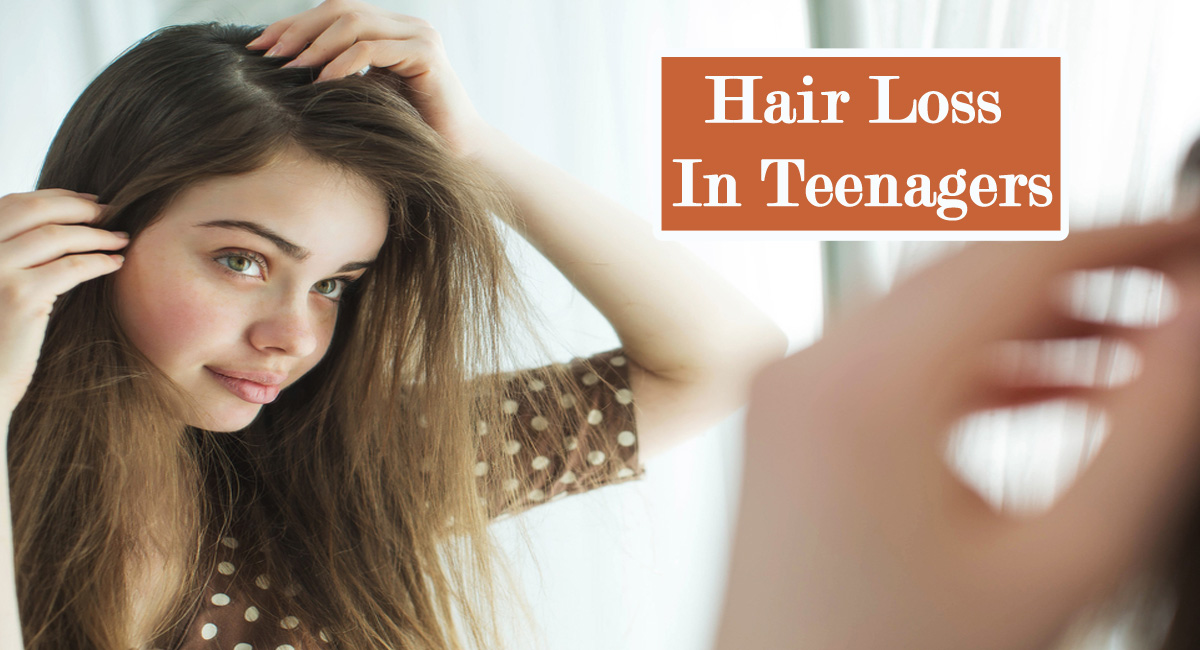Hair Loss In Teenagers: Cause, Treatment, and Prevention

Everyone, from adults to teens, has hair loss at some point in their lives. When it comes to hair loss, adults are more likely to experience it, while teens are less likely to share it since their hair development is steady at this age. Hair loss in teenagers may be caused by various factors, including underlying medical issues or environmental aggressors. A disorder known as hair loss occurs when hair development is halted or an increase in shedding or breaking of hair.
Male Teenagers’ Hair Loss and the Causes Affecting It
Baldness is often associated with older men because of our cultural preconceptions. Adolescent guys may also suffer from hair loss. The fact that you’ve realized you’re losing much hair might indicate that something is wrong with your health.
Irregular eating habits
Teenagers’ hair loss is often the result of weak hair roots attributed to a poor diet.
Scalp ringworm infection
If left untreated, tinea capitis, a fungal infection of the scalp, may lead to bald patches.
Medicines/Drugs
The adverse effects of several pharmaceuticals, such as anti-cancer therapies, vitamin A derivatives, and other drugs that include amphetamines (anti-hyperlipidemic drugs, antiepileptic drugs, and vitamin A supplements), may induce hair loss in adolescents. On the other hand, teenage males are mostly unaffected by these illnesses.
Hair Loss in Female Teenagers: Common Causes and Solutions
Unbalanced hormones
During puberty, hormones cause significant physical changes, and some females may even experience hair loss.
Over hair styling
This may lead to hair thinning if hairstyles put too much strain on the hair strands.
Irregular diet
Hair strength may be weakened by an unbalanced diet, another cause of hair loss in teenagers. Hair loss prevention by eating a well-balanced diet that includes all the required nutrients.
Teenagers’ hair loss may also be caused by environmental factors such as pollution, overexposure to the sun, and a lack of appropriate hydration during particularly dry or humid seasons.
Treatments for Teenage Hair Loss
As far as adolescent hair fall remedies and treatments go, the age element is significant since not all treatments are appropriate for teens. Hair loss in teenagers may be treated with medication, procedures, or a combination of both.
The following are some proven solutions to the issue of adolescent hair loss.
PRP for Hair Loss
Hair re-growth and restoration may be achieved using platelet-rich plasma (PRP), a non-invasive and therapeutic therapy. Different types of hair loss go; it’s a safe and effective treatment option for hair loss. Using centrifugation, platelets are removed from plasma and enriched with growth factors rich in protein. The rich combination is injected back into the scalp using tiny needles to activate the dormant stem cells. Adolescents’ hair may regrow and be restored naturally due to this technique. This therapy is only available to patients at least 18 years old.
Minoxidil
Teenagers who suffer from hair loss may benefit from this USFDA-approved medication, which has been shown to promote hair regeneration in patients. Specific adverse effects, such as scalp irritation or unexpected hair growth, might occur if the product is not used correctly. Teenage males and girls may both benefit from this drug.
Finasteride
It is a medicine that the FDA has authorized for men to decrease hair loss. Side effects might occur if the correct dose and instructions are not followed. Regardless of their age, women are not allowed to use this medication.
Laser treatment at a low level:
The FDA has approved LLLT to treat men and women with genetic hair loss. Even if it does increase hair density, there is no proof that it will have a long-term effect.
Some Preventions to follow for effective results
- Not to comb hair after the shower
- Eat nutrition food
- Avoid Smoking
- Reduce Stress
- Meditate (Whenever possible)
- Perform more physical activities such as exercise or Yoga to keep blood circulation active.
Conclusion
A variety of factors may cause teenagers hair loss. Hair thinning due to genetics may begin as early as adolescence and continue for the rest of a person’s life. In children and adolescents, alopecia areata is a prevalent autoimmune disease. To determine the origin of your hair loss issue and the best course of therapy, you should see a dermatologist if you discover that you are losing more hair than usual.






